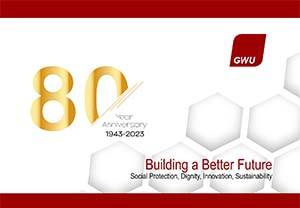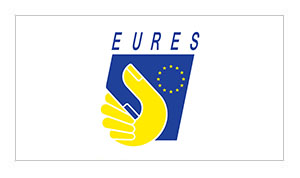The General Workers’ Union welcomed the detailed information presented during the Malta Council for Economic and Social Development meeting on investing in water and
strengthening the Water Services Corporation’s distribution system.
“Water is an essential resource, a basic human right and crucial for the quality of life, public health and sustainable development of the country. Therefore, any investment that improves the safety, efficiency and sustainability of this service should be supported and carefully pursued. Modernising the infrastructure and technology used in the purification and distribution process not only reduces water losses, but also improves the quality of water and service to citizens and businesses,” GWU General Secretary Josef Bugeja said in a comment to this newspaper.
He emphasised: “As a trade union, we are aware of the commitment of all workers and we have talked about the importance of this investment being accompanied by continuous training, investment in workers’ skills and safety measures commensurate with the importance of this sector. Workers must be part of the modernisation process and we must ensure that they have the necessary tools and skills to adapt to new challenges and needs.”
The GWU will continue to closely monitor this development, which is of great importance to our quality of life.
In the meantime, Water Services Corporation (KSI) CEO Karl Cilia and Eng. Etienne Lewis of Enemalta on the continued investment in the water sector and the intensive work on the electricity distribution network.
More than one hundred and twenty million euros in investments have led to a historic leap in water quality in our country. During the meeting, the social partners were able to participate in the initiative to promote tap water, as they had bottles of the same water on the table.
During the same presentation, the National Investment Plan of 310 million euros for the next 10 years was also reported, as well as green bonds and sustainable projects. It was also explained how the company is working to improve water quality and safety while strengthening infrastructure.
Enemalta explained how the company is continuing to strengthen the distribution network, as had already been presented in previous meetings with the social partners. There, a plan was presented that foresees that, as in 2024, when 82 kilometres of cable were laid, the reinforcement will continue with another 60 kilometres of new underground cables. Also presented at this meeting was a European-funded project for 15 kilometres of new cables in Birkirkara, Marsaskala and Mġarr Malta. It was explained how work on the distribution centres in Msida will transform the infrastructure to double capacity, an expansion of the distribution centres in St Andrews and Mosta and work has started on the commissioning of
two new distribution centres in Naxxar and Siġġiewi.
“In a world where geopolitical challenges are increasing and the global economy is under constant threat, it is more important than ever that we continue to invest in sustainability, in a more resilient country. In a country that offers flexibility. The work that these two organisations are doing aims to do just that: Flexibility that goes hand in hand with sustainability and builds on resilience. Work that we see in various aspects,” said the Minister for the Environment, Energy and Public Health, Dr Miriam Dalli.
Parliamentary Under Secretary of State for Social Dialogue, Dr Andy Ellul, described this consultation as one that strengthens the national plan for water sector sustainability in our country and aims to ensure businesses, workers and their families have a secure water supply. He explained that the government will also ensure a stable supply of electricity by laying new underground cables.
“These are important strategic investments in our country’s infrastructure so that businesses and workers can continue to operate as efficiently as possible,” Dr Ellul emphasised. These decisions complement other policy decisions made by the government, most notably the stability of electricity and water prices, which have ensured a predictable and sustainable life for businesses and workers.
The Parliamentary Secretary concluded by saying that the Malta Council for Economic and Social Development remains the platform that will continue to contribute to the sustainability of our country’s economy and its people.
The Chairman of the MCESD, architect David Xuereb, welcomed the fact that Minister
Miriam Dalli chose for the fifth time to inform and directly consult the Council on the
continuous reinforcement of electricity distribution in our country. This meeting was also a good opportunity for the social partners to express their views and comments on these crucial developments for the whole country.
During this meeting, the Water Services Corporation (WSC) also spoke to the MCESD about improving the water supply and sanitation system. The social partners also had the opportunity to talk about the “Ilma tal-Vit” initiative. After being given samples of this water to drink, they spoke in favour of this progress. They emphasised how this initiative can reduce dependence on plastic bottles and help Malta move towards a more sustainable future – a vision that MCESD fully supports.







